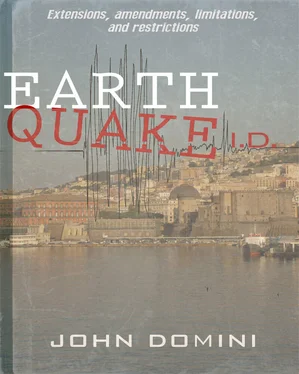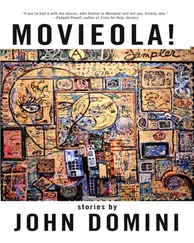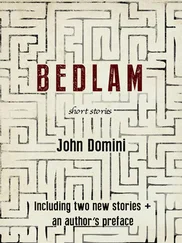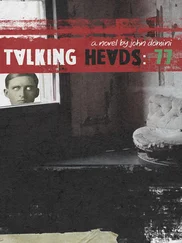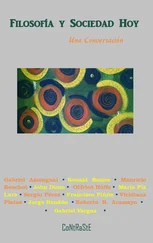“Ten and—” said Syl—”ten antennas? What?”
“It’s not ten antennas,” Dora whispered loudly. “The most anybody ever had was one antenna. Or maybe two.”
“Plus,” Chris said, “back in Bridgeport, like, you took us to the nursing home.”
JJ was wagging a couple of fingers at the NATO tag-alongs, two in the seats farthest back and one riding shotgun. “I’d say we’re safer here than in Bridgeport.”
“I hear you,” Barbara said. “But what about Paul?” If this was a commercial, the stage blocking called for her to face the boy. “Mr. Paul, honey, how do you feel?”
He shrugged, the Italian child. “I’m, I’m tired of doing what K-Kahlberg says.”
Barb went on: “You know there’ll be sick people there? Like in the hospitals?”
When the boy waved a hand, the gesture looked decidedly more effeminate than JJ’s. Mr. Paul remained unfazed: hospitals, whatever. Barb realized, too, that one reason her middle child could take the possibility in stride was that, in so far as she could, she’d kept him out of the sick wards and the trauma centers. Taking the children to visit St. Anthony’s Rest back in Bridgeport had been one thing, a learning experience and a Christian duty. They’d brought flowers, and once Paul and the girls had performed a St. Patrick’s Day number. But here, both she and Jay had figured Paul didn’t need any additional exposure to the halt and the sick. They’d got that much right. For instance on the afternoon following the second episode, Romy’s episode, Dr. DiPio had steered the slender eleven-year-old into a room with a couple of bad cases from the quake. The old medico had laid the boy’s hand on one of the patient’s heads, so swaddled in gauze you couldn’t tell whether this was a man or a woman. But that was as far as the little experiment went. In the next moment Barb and Jay had spotted DiPio and the boy, and they’d come barreling into the room, barking at the man (yes, the Jaybird had been barking too; give him credit).
The evening after that, the evening of the Capua trip, the doctor had made a formal proposal. He’d showed up at the Lulucitas’ palazzo — only a few blocks from his own, it turned out — and asked if he could take Paul to a nearby center for physical therapy. This time the father had almost knocked his handsome head against DiPio’s, he had to say no so often and so emphatically. The old doctor was in the grip of a vision; he saw the lame throwing off their crutches all over Naples.
Barbara, for her part, had done some research into faith healing. An easy business so long as she was on the web anyway, a matter of half an hour’s extra trolling. But what she read in those sites and downloads seemed like another sequence of mental slipknots. Nobody had reliable conclusions. Also the mother took one or two of her visits with Cesare as an opportunity to discuss Paul’s case. She was working up to complete honesty about the boy, she thought she would tell the priest everything, but on the day she’d come closest there were others in the sanctuary. The old Jesuit hadn’t paid her much attention, confining his responses to monosyllables, and Barbara understood that these visitors might be the clandestini . There were two of them, actually prostrated before the altar, their faces on a bandanna spread across the floor. The dark couldn’t hide the shabbiness of their sandals.
Anyway, this morning Paul no longer looked like a kid who required extra research or outside counseling. “I’m with, with them.” To see him nod towards his brothers, you would’ve thought he was a normal bubbly inarticulate American preteen. “Like, wh-who needs all this dumb, dumb old p-paperwork?”
Chris again: “Guys, it’s like, unreal, down there. Everything’s way up to date and way old at the same time.”
John Junior undid his seatbelt and leaned close to the driver. When he spoke, he was the man of the house. “Castel dell Huevos.”
“Guys, it’s like, the only thing of its kind on the planet.”
“Like Jesus,” said Dora.
“Like Jesus,” said Sylvia. “This whole family is very good.”
The first to acquiesce was the soldier nearest Barb. He gave a slow nod, a stolid bit of body-talk typical of the Organization’s Dutch boys. Barbara could read his Teutonic mind, though. He had to be giving himself the same reassurances as she did: the castle was crawling with cops. Dell’Ovo, more than likely, offered tighter security than the hometown of Barbara’s runaway mom.
And this soldier appeared to hold rank. Following his wordless okay, the other two nodded as well, nodded and shrugged. Then there was the driver. This man waved John Junior off his shoulder and, at the next clutch of traffic, he found Barbara in his rear-view mirror.
“We change, signora…we don’t the itinerario?”
Barbara gave him a frown: What part of this don’t you understand?
“The tenente , Kahlberg…he doesn’t know.”
“Castel dell’Ovo,” she snapped.
“I am never without orders from the—”
“The hunger strike. Right this minute.”
The driver went so far as to pick up his cell phone. But the Lieutenant Major couldn’t be reached just now — wasn’t that the point of today’s arrangements? Meantime the wild young Americans had broken into a war chant: Dell-oh-voh! Dell-oh-voh! The man at the wheel slapped down the phone, perhaps he left a page, and then he wrenched the van into a U-turn. The chant was joined by the squawks of car-horns.
Barb didn’t waste her energy on celebration. Her opening had proved a winner, yes, but now she’d better brace herself She might accomplish nothing more than jerking the liaison man around a bit. She might leave him a little sore, e basta . Yet wouldn’t that alone be worth it? To make this unsought Wizard rush out from behind the curtain, like the lying slob he was, wouldn’t that be worth the effort? As for the gashes of guilt, Barbara would’ve had to endure those anyway. Anyway, bottom line, she couldn’t help but believe that with today’s surprise, she’d do better. She’d startle the PR man into showing her the smoking gun, and establish once and for all that the marriage was dead. The mother studied herself in the tinted window, putting on her game face. Beyond her reflection she enjoyed the 180-degree whirl of one cliff-side switchback after another. The driver didn’t need the beltway to get down to the Bay, and here and there Barbara caught glimpses of the age-old market theater, the hawkers in the museum.
The drive bottomed out onto the harbor straightaway, along breakwaters of heaped stone. Moored to iron hoops sat fat low boats, wooden boats mostly, brightly trimmed. Motionless, they made you think the weather was off the Sahara. But once everyone piled out, the two girls started cooing at the breeze. Dora and Sylvia liked the whole scene: the waddly fisher-craft, the strings of plastic pennants above them, the flags’ goo-goo colors in constant flutter. The eight-year-olds were too quick for Barbara, rushing out onto one of the plank walkways over the breakwaters. The girls hopscotched along the bouncy flats, giggling and delighted till they were quieted by their first good look at the castle.
Dell’Ovo rose like some outgrowth of the stones beneath the twins’ feet. It seemed like base material, a heap of pockmarked sand, and at first you didn’t notice the windows and doorways. There were only the elephantine walls, rough-cut manmade cliffs, ugly dirt-yellow, the whole effect so spongy you got the impression it could swallow incoming cannonballs. The stronghold looked nothing like an egg. The name had to do with something else, a story Chris started to tell as the group approached the quay’s security gate. The boy launched into “the earliest story, anyway,” one with Virgil in it. Here the Roman poet, under a full moon, had seen a mystic vision: an immense egg rising from the sea, and in it a new epic, a new life.
Читать дальше
